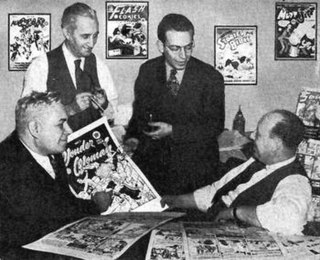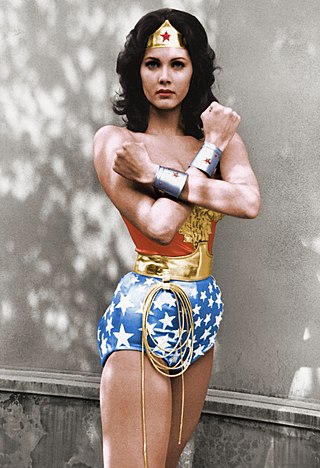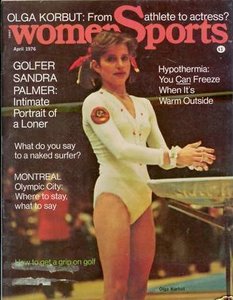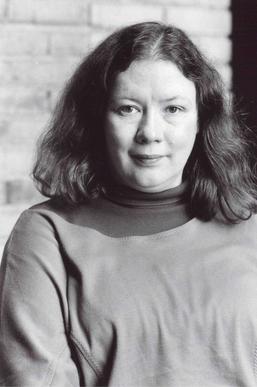Related Research Articles
Ms. or Ms is an English-language honorific used with the last name or full name of a woman, intended as a default form of address for women regardless of marital status. Like Miss and Mrs., the term Ms. has its origins in the female English title once used for all women, Mistress. It originated in the 17th century and was revived into mainstream usage in the 20th century. In the UK, Ireland and the majority of Commonwealth countries, a full stop is usually not used with the title; in Canada and the United States a full stop is usually used.

Gloria Marie Steinem is an American journalist and social-political activist who emerged as a nationally recognized leader of second-wave feminism in the United States in the late 1960s and early 1970s.

Robin Morgan is an American poet, writer, activist, journalist, lecturer and former child actor. Since the early 1960s, she has been a key radical feminist member of the American Women's Movement, and a leader in the international feminist movement. Her 1970 anthology Sisterhood Is Powerful was cited by the New York Public Library as "One of the 100 Most Influential Books of the 20th Century." She has written more than 20 books of poetry, fiction, and nonfiction, and was editor of Ms. magazine.

Ms. is an American feminist magazine co-founded in 1971 by journalist and social/political activist Gloria Steinem. It was the first national American feminist magazine. The original editors were Letty Cottin Pogrebin, Mary Thom, Patricia Carbine, Joanne Edgar, Nina Finkelstein, Mary Peacock, Margaret Sloan-Hunter, and Gloria Steinem. Beginning as a one-off insert in New York magazine in 1971, the first stand-alone issue of Ms. appeared in January 1972, with funding from New York editor Clay Felker. It was intended to appeal to a wide audience and featured articles about a variety of issues related to women and feminism. From July 1972 until 1987, it was published on a monthly basis. It now publishes quarterly.

The magazine Lilith is an independent, Jewish-American, feminist non-profit publication that has been issued quarterly since 1976. The magazine features award-winning investigative reports, first-person accounts, entertainment reviews, fiction and poetry, art and photography. Topics range from rabbinic sexual misconduct, to new rituals and celebrations, to deconstructing Jewish-American stereotypes, to understanding the Jewish stake in abortion rights.

Harry George Peter was a French-American newspaper illustrator and cartoonist known for his work on the Wonder Woman comic book and for Bud Fisher of the San Francisco Chronicle.

Wonder Woman is a character created for comic books in 1941, the medium in which she is still most prominently found to this day. As befitting an icon of her status, she has made appearances in other forms of media and has been referenced and meta-referenced beyond the scope of traditional superhero entertainment. For several years in the 1950s, the only three superheroes to have their own comic book were Superman, Batman, and Wonder Woman.

Barbara Seaman was an American author, activist, and journalist, and a principal founder of the women's health feminism movement.

Florynce Rae Kennedy was an American lawyer, radical feminist, civil rights advocate, lecturer, and activist.

womenSports magazine was the first magazine dedicated to women in sports. It was launched in close conjunction with Billie Jean King's Women's Sports Foundation and each issue of the magazine contained a two-page article written by the executive director of the Foundation. It was started soon after Billie Jean's win at the Battle of the Sexes.

Letty Cottin Pogrebin is an American author, journalist, lecturer, and social activist. She is a founding editor of Ms. magazine, the author of twelve books, and was an editorial consultant for the TV special Free to Be... You and Me for which she earned an Emmy.
The Ms. Foundation for Women is a non-profit organization for women in the United States, which had a deep commitment to diversity and was founded in 1972 by Gloria Steinem, Patricia Carbine, Letty Cottin Pogrebin and Marlo Thomas. The organization was created to deliver strategic resources to groups which elevated women's and girls' voices and solutions across race and class in communities nationwide, working to identify and support emerging and established groups poised to act when and where change is needed. Its grants — paired with skills-building, networking and other strategic opportunities — enable organizations to advance women's grassroots solutions across race and class and to build social movements within and across three areas: Economic Justice, Reproductive Justice and Safety. The organization also focuses its lobbying efforts on the state-level around those three areas.
Amelia Richards is an American activist, organizer, writer, television producer, feminist, and art historian, currently residing in New York. She produced the Emmy-nominated series Woman, which airs on Viceland. She is the president of Soapbox, Inc., a feminist lecture agency.
Lilly Rivlin is an American- Israeli journalist, writer, and filmmaker in the genre of documentary/ political films on women's issues.
Dorothy Pitman Hughes was an American feminist, child-welfare advocate, activist, public speaker, author, and small business owner. Pitman Hughes co-founded the Women’s Action Alliance. Her activism and friendship with Gloria Steinem established racial balance in the nascent feminist movement.

Mary Thom was an American feminist, writer, and editor. She was one of the founding editors of Ms. magazine, and was an editor for the magazine for 20 years.
Brenda Feigen is an American feminist activist, film producer, and attorney.
Feminist businesses are companies established by activists involved in the feminist movement. Examples include feminist bookstores, feminist credit unions, feminist presses, feminist mail-order catalogs, and feminist restaurants. These businesses flourished as part of the second and third-waves of feminism in the 1970s, 1980s, and 1990s. Feminist entrepreneurs established organizations such as the Feminist Economic Alliance to advance their cause. Feminist entrepreneurs sought three primary goals: to disseminate their ideology through their businesses, to create public spaces for women and feminists, and to create jobs for women so that they did not have to depend on men financially. While they still exist today, the number of some feminist businesses, particularly women's bookstores, has declined precipitously since 2000.
This is a Timeline of second-wave feminism, from its beginning in the mid-twentieth century, to the start of Third-wave feminism in the early 1990s.
References
- 1 2 Who's who of American Women. Marquis Who's Who. 1973. p. 143. ISBN 978-0-8379-0408-5.
- ↑ Ciarrocchi, Pat (June 27, 2022). "Pat Ciarrocchi: 'Why are we back here in this place?'". The Philadelphia Inquirer . Retrieved August 19, 2022.
- 1 2 3 4 5 Love, Barbara J. (2006). Feminists Who Changed America, 1963-1975. University of Illinois Press. ISBN 978-0-252-09747-8.
- 1 2 3 4 "Ms. Magazine". Missouri School of Journalism. July 13, 2012. Retrieved August 19, 2022.
- ↑ "Wonder Woman's Secret Past". The New Yorker. September 15, 2014. Retrieved August 19, 2022.
- 1 2 Steinem, Gloria (2014). "Sex, Lies, & Advertising". Readings in Advertising, Society, and Consumer Culture. doi:10.4324/9781315701271. ISBN 9781317461364.
- 1 2 Farrell, Amy Erdman (1994). "A Social Experiment in Publishing: Ms. Magazine, 1972-1989". Human Relations. 47 (6): 707–730. doi:10.1177/001872679404700607. ISSN 0018-7267. S2CID 145504256.
- 1 2 Pogrebin, Abigail (October 28, 2011). "An Oral History of 'Ms.' Magazine". New York Magazine . Retrieved August 19, 2022.
- ↑ Kilkenny, Katie. "How a Magazine Cover From the '70s Helped Wonder Woman Win Over Feminists". Pacific Standard. Retrieved August 19, 2022.
- ↑ O'Reilly, Jane (June 26, 1972). "Whatever Happened to 'Ms.'?". New York Magazine . pp. 39–41. Retrieved August 19, 2022.
- ↑ "Top Editor of Ms. Finds Press Remiss On Women in News". The New York Times . April 16, 1976. ISSN 0362-4331 . Retrieved August 19, 2022.
- ↑ Ivins, Molly (August 24, 1976). "Judge Dismisses Suit Against Ms". The New York Times. ISSN 0362-4331 . Retrieved August 19, 2022.
- ↑ "Collection: Pat Carbine papers | Smith College Finding Aids". findingaids.smith.edu. Retrieved August 19, 2022.